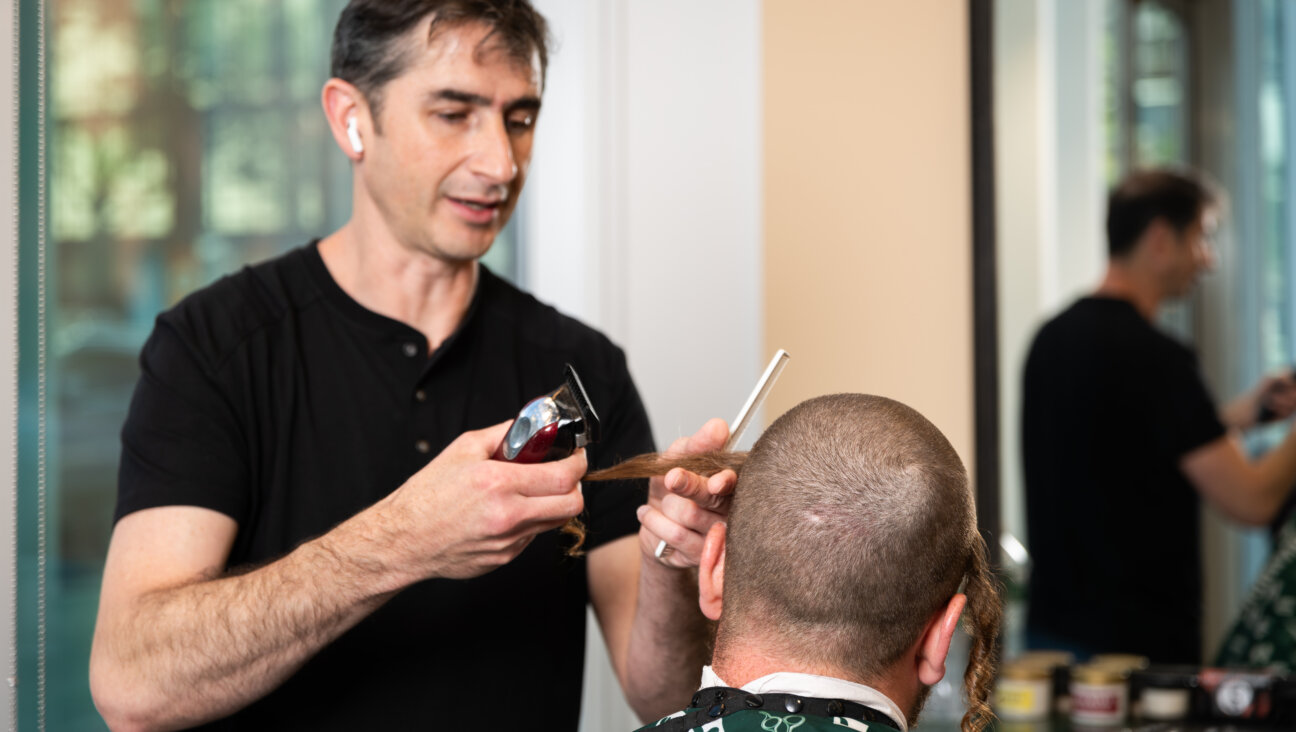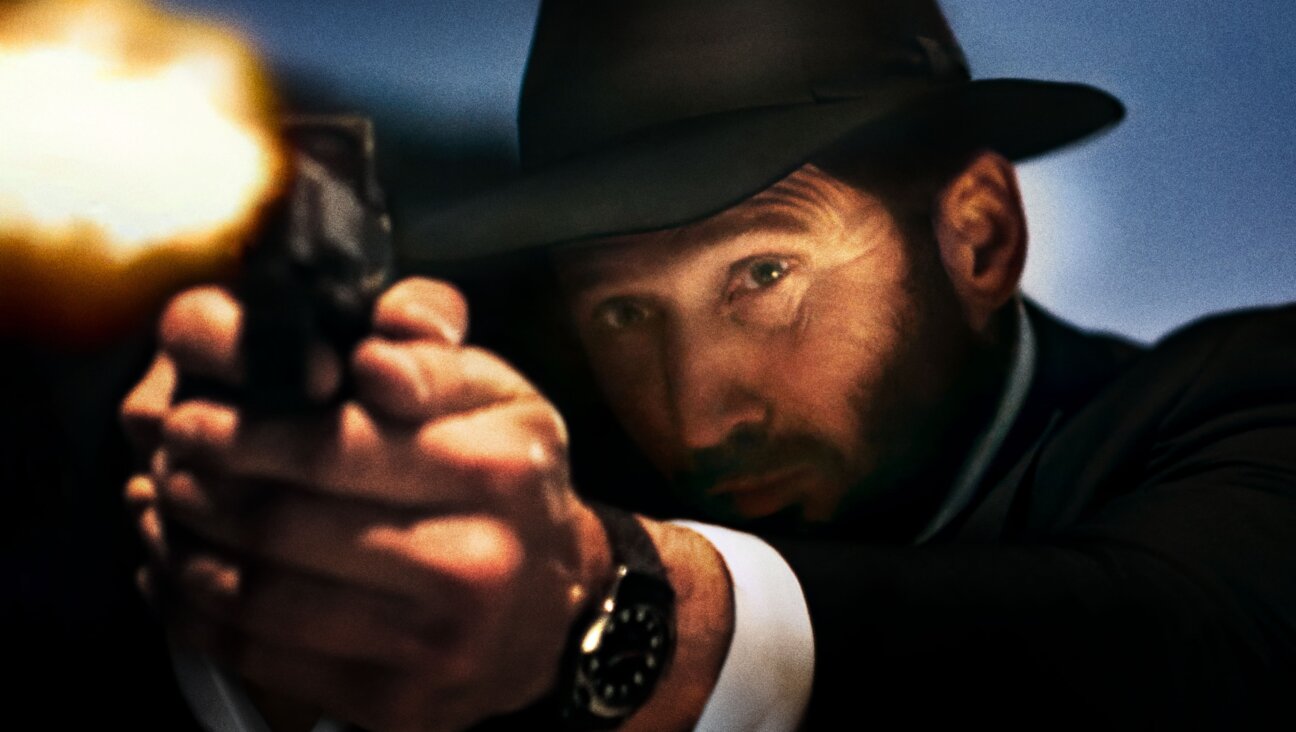My New York accent problem — and ours

Katz’s Deli, circa 1975 Image by Getty Images
You Talkin To Me: The Unruly History of New York English.
By E.J. White.
Oxford University Press, 320 pages, $19.95
I distinctly remember the moment, around age 10, when I realized that the word “quarter” had two “r”s in it. As the great-grandson of immigrants, three generations into an American journey from the Lower East Side to Flatbush to Great Neck, I was far enough along to know about the final “r” — I’d never say “cawtuh” like some cashier at Katz’s — but not the middle “r.” That one was a shocker. Ever since, I have tried, with limited success, to shift my pronunciation from “cawter,” which forms naturally in my mouth, to “quarter,” which does not.
Ever since that youthful moment of discovery, I’d never doubted that the two-“r” pronunciation was the correct one, the proper one, indeed, the American one. But having recently read linguistics professor E.J. White’s new book, “You Talkin To Me: The Unruly History of New York English,” I now have the distinct sense that I was bamboozled. Who exactly decided that the accent of America’s largest city was somehow un-American — and why?
A rare linguistics professor who can write for civilians, E.J. White proves a sage guide. Having grown up in small towns on the West Coast, she now teaches at SUNY Stony Brook, on Long Island, where she gets an earful of local accent and attitude from the student body. As a transplant, White’s been able to pick up on the pronunciations, speech patterns and word choices that make New York English so New York — ones natives, like myself, often miss.
Needless to say, the most notorious aspect of New York pronunciation are those mysterious disappearing “r”s. Academic linguists call this phenomenon “nonrhoticity.” But New York English goes far beyond mere pronunciation quirks, building an entire linguistic universe around a unique metropolitan mindset.
The New York belief in bluntness-as-honesty, White explains, underlies the local fondness for the f-word (“New Yorkers are connoisseurs of the word fuck,” she informs her readers). White also notes that myriad local speech patterns which Middle Americans see as rude are read, inversely, as polite in New York, including “interruption as a sign of listening” and “argument as engagement.” And she discerns that the Gothamite tic of complaining to strangers, generally considered a buzz-kill West of the Hudson is, in New York, a way of building camaraderie by “welcoming you into the good fight against the world.”
For linguists, the greatest mystery of New York English is its marginalization. In most countries, the accent of the largest city is the official and most prestigious accent of the nation. Parisian French and the Queen’s London English are accepted as the proper accents everyone in France and Britain should strive for. But in America, strangely and uniquely, this is flipped; the U.S. operates on what linguists dub “the Midwestern prestige model.”
White quotes colleague Thomas Bonfiglio, whose seminal work she popularizes, as noting, “It would be strange to imagine [the] British emulating the speech of Yorkshire or German[s] emulating the Alpine dialects. Yet, this is basically what happened in the standardization of American English. The pronunciation of the economic and cultural centers of power was not taken as a model. Instead, the pronunciation of a largely rural area, the Midwest and west, was preferred.”
White retraces how this anomalous situation came to be. A hundred years ago, the accent of posh New Yorkers, in all of its nonrhotic glory, was the unquestioned prestige accent for America. Think of New York native Franklin Delano Roosevelt intoning that “the only thing we have to fee-ah is fee-ah itself.” White calls this nonrhotic, aristocratic accent “New York Dainty” and its speakers the “Knickerbocracy.”
Yet even as FDR rose to the White House, his Knickerbocracy was being dethroned. Hollywood was supplanting Broadway in cultural reach. And the accents Americans heard on-screen in the talkies changed dramatically after Paramount shuttered its studio in Queens and shifted production to California. Even the broadcast media that remained in Manhattan was soon systematically stamping out the New York accent. In 1943, NBC tapped an Ohio native to create an official “Handbook of Pronunciation” for the network that mandated the rhotic pronunciation of all “r”s.
By midcentury, with the rise of Edward R. Murrow (of Washington State), the ostensibly “neutral” accent from West of the Mississippi had become standard among newscasters and remained entrenched through successors like Walter Cronkite (of Missouri) and Tom Brokaw (of South Dakota). To this day, the on-air talent at 30 Rockefeller Plaza pronounces its headquarters as the rhotic “Rockefeller” while the security guards in the lobby — and most everyone else within a 50-mile radius — say “Rockefella.”
But the strangest aspect of the New York accent is that it is self-loathing — not only do non-New Yorkers dislike it but New Yorkers themselves despise it. Across the Pond, plenty of Scots resent the official London English beamed down by the BBC but Londoners rest assured in knowing that they’re speaking the language properly. By contrast, New Yorkers who have New York accents truly feel stricken and in need of correction and have even marshaled their own local government in a bid to cure them.
For much of the 20th century, the New York City Board of Public Education enforced a rule that teachers in the district should never sound like New Yorkers. The goal was not to sand down the rough edges of working-class diction into Rooseveltian New York Dainty but to import the Midwestern prestige model, breaking faculty of a local accent the Board considered “slovenly” and “uncultivated.” In their bid to stamp out the indigenous accent, the authorities composed simple rhymes for students to recite, including “Daisy wore a stylish dress, / But she would say ‘Yeah’ for Yes.”
These policies were in place when my late grandmother began her career as a foreign language teacher in the Brooklyn public schools. Whatever accent she had grown up with on the Lower East Side was studiously scrubbed clean to get hired. I remember when my grandmother reminisced in her retirement about growing up on East Broadway, she pronounced the street name with an almost William F. Buckley-ite flair, all the emphasis on the “way” syllable not the “broad.” If you were from Mars — or Montana — you’d have thought East Broadway was second in prestige only to Park Avenue.
But the school board wasn’t just making my grandmother sound less New York, it was making her sound less Jewish. Which raises the uncomfortable question: How much of the New York accent’s national disrepute and local self-loathing are rooted in its association with Jewishness?
Historically, the displacement of New York Dainty by Haute Omaha was deeply intertwined with the New York accent becoming associated with immigrants in general and Jews in particular. Secret anti-Jewish quotas purposefully shifted the dominant accent on Ivy League campuses toward Middle America in the 1920s and with it wider ideas about how proper Americans should sound. An internal 1923 Harvard admissions office memo spoke of “building up a new group of men [from] towns and small cities [in] the West and South.”
For demographic reasons, these students were far less likely to be Jewish, which was, of course, the point, since the whole geographic-diversity policy had been reverse-engineered to reduce the number of Jews. In New York City itself, the board of education was explicit in singling out Jewish students, who by the early 20th century, made up nearly half of Manhattan’s public school children, as the worst accent offenders. As one internal Board document put it in 1931, “The greatest burden of our work…is among the people of Russian Jewish origin. Their speech in general is guttural, nasal and with a rising inflection at the end of phrases, sentences and emphatic words.”
Once sounding like a New Yorker and sounding like a Jew were intertwined in the American mind, sounding like a New Yorker became unfashionable. By the second half of the 20th century, White notes, surveys found that the two least-liked accents in America were those of New York City and Mississippi — America’s most Jewish city and its Blackest state. No doubt this derision was unconsciously (or not-so-unconsciously) intertwined with anti-Semitism and anti-Blackness.
As Americans, these ethno-racial accent associations run deep; I’m not immune. As a child visiting relatives in Birmingham, it sounded to me like the white people all talked like Black people — even my Jewish relatives, who said “y’all” for “you guys.” I remember thinking they sounded different — and not in a good way. This value judgment, I now realize, fell on the same soft-core white-nationalist spectrum as my own fear of sounding like a cashier at Katz’s. Too Jewish.
Whether out of political correctness, the academic social scientist’s aversion to clear declarative statements, or a lingering small-town non-confrontational conversational style, E.J. White never quite goes here. Instead, all we get is a trail of breadcrumbs. This includes a famous snippet of dialogue from the sitcom “30 Rock” that White leaves without authorial comment as a standalone epigraph:
JACK: The television audience doesn’t want your elitist, East Coast, alternative, intellectual, left-wing—
LIZ: Jack, just say Jewish, this is taking forever.
This quip could be applied to White’s book. So I’ll just second Liz Lemon’s collaborative interruption with an expression from my native island, whose locals are known for their colorful expressions and enviable succinctness: Fuck Yeah!
Daniel Brook was born in Brooklyn, raised on Long Island, and now lives (sensibly) in the Sun Belt. His most recent book, “The Accident of Color: A Story of Race in Reconstruction,” was recently reissued in paperback by W. W. Norton. He last wrote for the Forward about the Mob Museum in Las Vegas.



















